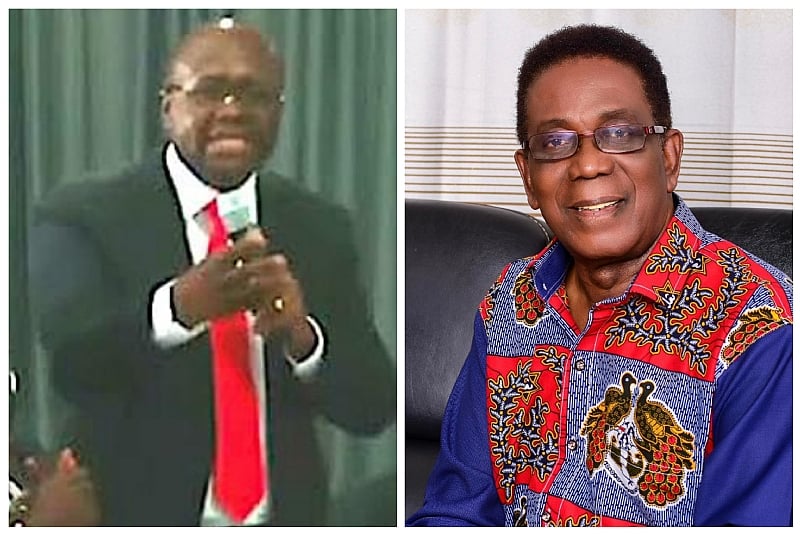In a recent recount of a special Inter-Party Advisory Committee (IPAC) meeting, Prof. Kwesi Yankah, the former Minister of State in charge of Tertiary Education, humorously reflected on the diverse communication styles present, particularly highlighting an encounter with Dr. Omane Boamah, the Director of Elections for the National Democratic Congress (NDC). Dr. Boamah’s usage of complex vocabulary during his presentation on the NDC’s demand for a forensic audit of the voters’ register left Prof. Yankah in jestful confusion, leading him to search for a dictionary. This light-hearted remark emphasized the distinction between different political communication styles observed during the meeting, which included various party representatives, such as Akua Donkor, the founder, and flagbearer of the Ghana Freedom Party. Donkor’s speech, delivered in Twi, provided a striking contrast to Dr. Boamah’s high-level language, showcasing the cultural and linguistic diversity among Ghanaian political figures.
The discussion during the meeting centered around the NDC’s insistence on a forensic audit of the electoral processes, a matter deemed critical by various stakeholders in Ghana’s democracy. Prof. Yankah humorously quoted Dr. Boamah’s remarks on the need to “fix the leakage” in the electoral system, highlighting phrases such as “dichotomous approach” and “altruistic demands.” These remarks were made in the context of addressing electoral integrity but were met with skepticism regarding the effectiveness of such high-level discourse by political elites. Prof. Yankah playfully mused about the future possibility of Akua Donkor becoming “Her Excellency President Akua Donkor” if the NDC’s demands were not adequately addressed, illustrating the unpredictable nature of political outcomes in Ghana.
One of the standout moments of the meeting was Akua Donkor’s impassioned defense of the Electoral Commission, in which she condemned the NDC for what she termed as harassment directed at the EC Chair, Jean Mensa. Speaking in Twi, Donkor emphasized the importance of supporting the Electoral Commission amid political tensions, demanding respect and appreciation for its efforts. Her statement sparked conversations among party representatives and underscored the challenges faced by the EC in a politically charged environment. Prof. Yankah noted that despite the criticisms aimed at Donkor for her linguistic choice, her impactful commentary resonated with a significant segment of the population who communicate predominantly in local languages, thereby ensuring that their voices are not lost in the political discourse.
Prof. Yankah’s critique of the prevailing attitudes towards language use in Ghanaian politics revealed deeper societal issues regarding literacy and representation. He pointed out that social media reactions often reflect a dismissive view of individuals who speak in their native languages, suggesting that a faction of English-speaking elites misinterpret language proficiency as a facet of wisdom. This situation creates an environment where non-literate Ghanaians, represented by figures like Akua Donkor, feel marginalized in political discussions, as their contributions are viewed through the lens of linguistic elitism. By defending Donkor’s participation in Twi, Prof. Yankah called attention to the importance of inclusivity in political conversations, advocating for a broader understanding of what constitutes impactful political participation.
The remarks from both Dr. Boamah and Akua Donkor during the IPAC meeting highlight a fundamental tension in Ghanaian political discourse: the interplay between formal education, language proficiency, and political legitimacy. Boamah’s use of sophisticated language may reflect a desire to convey expertise and authority, while Donkor’s choice to communicate in her native tongue underscores the significance of cultural identity in politics. This dichotomy illustrates the diverse backgrounds and experiences of Ghana’s political figures and how such diversity can enrich national conversations even as it raises questions about accessibility in political engagement.
Ultimately, Prof. Kwesi Yankah’s reflections serve as a critique and a celebration of the variety of voices within Ghana’s political landscape. The juxtaposition of eloquence and authenticity demonstrates that effective communication can take many forms, challenging preconceived notions about language and education. By recognizing the contributions of individuals like Akua Donkor, who speak to the heart of the populace in their own dialect, there is a call to embrace a more inclusive political culture. Such an approach could lead to greater civic engagement and ensure that all citizens, regardless of their linguistic abilities, are acknowledged participants in the ongoing dialogue about the future of Ghanaian democracy.














